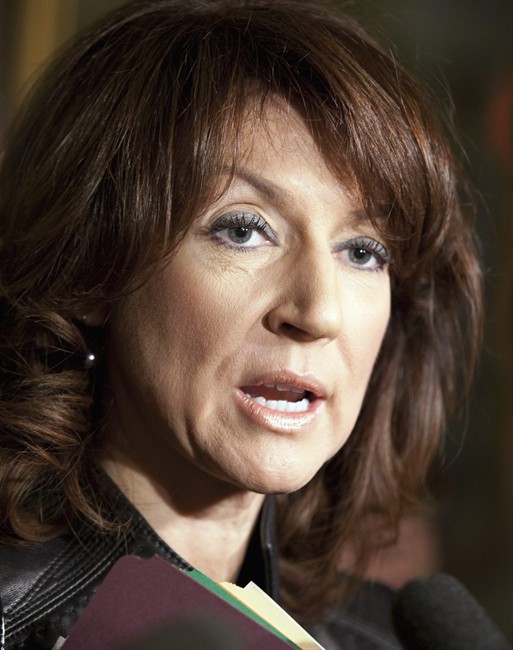QUEBEC – Quebec Premier Jean Charest’s second-in-command is walking away from politics in an abrupt departure for one of the province’s highest-profile lawmakers.

Nathalie Normandeau, Quebec’s deputy premier and natural resources minister, made the announcement Tuesday in Quebec City.
Normandeau, 43, said she’s looking for more stability in her private life, after spending more than a decade under the political spotlight.
“Today, I hope my personal life will start taking precedence over my professional life,” Normandeau told a news conference, with Charest at her side.
“After 13 years as an MNA and eight years as a cabinet minister, it’s time to pass the torch.”
The seasoned politician, who some thought could one day succeed Charest as Liberal leader, said she will take time to rest and reflect before her next endeavour.
Normandeau first earned a seat in the provincial legislature in 1998 and served as one of Charest’s most-trusted ministers over the last few years. Before that, she was mayor in her hometown of Maria, in Quebec’s Gaspe region.

Get breaking National news
In Quebec City, she was named to cabinet in 2003. She was municipal affairs minister from February 2005 until June 2009, when she took over the natural resources dossier.
Most recently, Normandeau was responsible for Quebec’s massive energy and mining development program for its north – known as the Plan Nord or “Northern Plan.”
On Tuesday, Charest praised her ability to bring about consensus among those who disagreed.
- After Trump vows 25% tariff, here’s what Trudeau, Poilievre and premiers say
- Loonie’s plunge just one consequence of Trump tariff threat on your wallet
- N.S. election: Results to be delayed after voting station opens late near Halifax
- Will Canada’s tax ‘holiday’ create a ‘mess’ for businesses? Some say yes
“It’s a very, very rare political talent,” said the premier, who expressed disappointment about losing a key ally.
“This news saddens me, and at the same time, it’s a decision that I accept.”
He added that the door will remain open if she one day decides to return to the Liberals.
But even with Normandeau’s considerable cabinet experience and prominence, she was also at the centre of recent controversies.
She faced heavy criticism from environmentalists and landowners over the past year for her defence of Quebec’s fledgling – yet the highly contentious – shale-gas industry.
Normandeau was also attacked by the opposition Parti Quebecois for maintaining a relationship with former Montreal police chief Yvan Delorme, who himself has come under fire amid corruption allegations.
It wasn’t the first time one of her relationships had made headlines in the province: Normandeau also dated fellow MNA Francois Bonnardel, a member of the opposing Action democratique du Quebec.
But she has also claimed some victories for Quebec.
She pointed Tuesday to projects such as the Plan Nord and the so-called Old Harry oil and gas reserve in the Gulf of St. Lawrence.
Earlier this year, Normandeau signed an agreement with Ottawa that gives Quebec 100 per cent of the royalties from Old Harry.
The deposit, estimated to hold two million barrels of recoverable oil, has been the source of a long-running interprovincial feud because it straddles a disputed boundary between Quebec and Newfoundland and Labrador.
The Plan Nord, meanwhile, is expected to include a sweeping set of projects – such as mining, energy development, tourism and conservation – that would receive $80 billion in public and private investment over the next 25 years.
Many saw Normandeau as a possible contender for the Liberal leadership, though she likely would have had to improve her English.







Comments